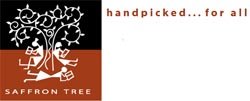Wordfreak aka Aryan and Worddiva aka
Alisha hit it off as opponents in an online Scrabble game. Several steamy chat
sessions later, they decide to meet and find – oh happy fates! – that neither
is a fat, hairy, psycho/ serial killer/ rapist. Even better, they are both impossibly gorgeous,
breath-takingly tall, super rich, conveniently
single and utterly besotted with each other . And I
haven’t even mentioned their socially useful careers yet - Alisha helps women escape abusive marriages, while Aryan builds green homes by day, swings with
Mumbai’s swish set by night and sweet talks them into financing his rural
projects.
One gaudy Punjabi wedding straight out of a Karan Johar film- and
several bouts of coyly described sex – later, Aryan and Alisha seem all set for the happily
ever after. Except that Scrabble is promptly replaced by Squabble. Alisha is attacked by a client’s disgruntled
ex, and Aryan chooses the opportunity to unleash his inner caveman. He yells. She
weeps. He disappears. What is a smart ,
independent no-nonsense girl with a successful career , to do?
Drop everything and follow in his
manly and troubled footsteps, according to Kothari. For despite Aryan revealing
himself to be a chauvinist, alarmingly violent and contemptuous of the law (all
in the name of love, cries Kothari), Alisha packs her bags and hares off to
London with his Nani , where she helps her
true love confront his troubled past, patch up with his estranged father and
half-siblings, and realize just how
badly the plot needs another gaudy Punjabi
wedding - sorry, how much he
loves her. KJo would approve. I don’t.
Wordfreak is a book that tries to be a lot of things, in a half
hearted sort of way. The first half swings from ‘hot (well, tepid actually) Mills
and Boon choli-ripper’ one second, to ‘ sensitive look at a modern day
relationship’ the next; the second aims for
full blown Bollywood melodrama. It
also offers up randomly scattered
observations about everything from gender equality and India’s spiraling divorce rate, to green
design and differing skin tone ( “the
quintessential difference between them – he was a North Indian Aryan, and she
was a South Indian Dravidian.”) . The
book does have some interesting characters – Diya, Uncle Sam, Alisha herself –
but they soon disappear in this unreal
world where everyone is thin,
beautiful and loaded, and loyally served
by a retinue of smiling servants. Also
slaves to filmi stereotype - The North Indians are perennially overdressed , swinging at weddings or travelling abroad;
South Indian Alisha seems to eat nothing
at home besides idlis and dosas .
Wordfreak managed to annoy me with repeated references
to Alisha’s “chocolate eyes”, as well as her various pet names – “Lee-sha” and
“Sunshine”. There is also plenty of unintended humour, thanks to the
prissy –or downright careless- wording
in all those sex scenes. Sample – “He groaned, loving what she did to him..How
was he supposed to moderate this?” Where
are you, dude, at a high school debate? Or,
“He aroused them… until they tittered (sic) ..on the edge of annihilation.” I
tittered too.
And what is one to make of all the misplaced snippets
of information throughout the plot? Why, in the midst of an emotional moment,
do we need to know the details of Aryan’s post graduate studies? And why, after
a deluge of ‘kuttis’ and ‘sahodarans’ – not to mention all those idlis – are we
helpfully informed that Alisha speaks Malayalam, exactly two pages from the ending?
Your move, editor?






